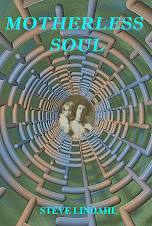 The Last Days of Night by Graham Moore
The Last Days of Night by Graham MooreMy rating: 5 of 5 stars
The Last Days of Night is a wonderfully written novel about the battle between AC (Alternating Current advocated by George Westinghouse) and DC (Direct Current advocated by Thomas Edison) at the time in America's history when our country was moving from gas lighting to electric. There was more to this fight than the science behind it. The winner would end up with contracts to electrify the nation and with the fortune that followed those contracts.
Here's a quote about the differences in the business philosophies of Edison and Westinghouse:
“Westinghouse was responsible for tremendous feats of manufacturing—extremely well-built devices made by a factory of hundreds, each one supplying a part. A chain of construction. Edison, on the other hand, had built himself a factory that did not produce machines, but rather ideas.”
The novel is written from the point of view of Paul Cravath, a young attorney who represented George Westinghouse. Cravath is brilliant in his own field, but has a limited knowledge of technology. His need to know provides a non-obtrusive way for Moore to describe the basics to his readers without disrupting the flow of the story.
The Last Days of Night is historical fiction with characters such as Agnes Huntington, Nikola Tesla and Alexander Graham Bell in addition to the three main characters: Edison, Westinghouse, and Cravath. It's also a story of ruthless business practices, of the early days of patent law, and has a love story woven in as well. It is a hard book to put down.
Steve Lindahl – author of Motherless Soul, White Horse Regressions, Hopatcong Vision Quest, and Under a Warped Cross
View all my reviews







